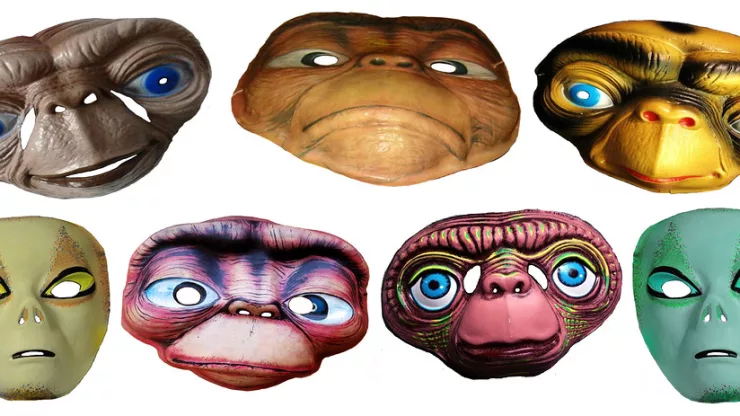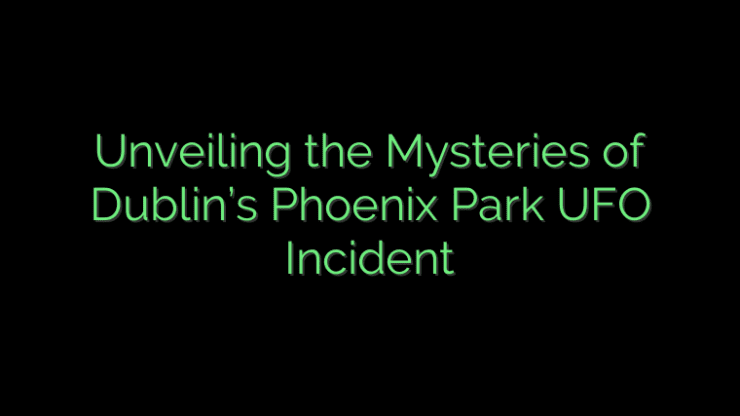Television shows featuring alien encounters have captivated audiences for decades, fueling our imagination and sparking curiosity about extraterrestrial life. But how much of these depictions are based on reality?
In this article, we will delve into the world of TV’s alien encounters and separate fact from fiction.
Jump to Section
Introduction
For years, television has entertained us with shows featuring alien encounters. These depictions have ranged from comical to frightening, and have fueled our fascination with the possibility of extraterrestrial life.
While some may dismiss these shows as pure entertainment, others believe there is more to these depictions than meets the eye.
In this article, we will explore the reality of TV’s alien encounters and examine the influence they have on our society.
The Reality of TV’s Alien Encounters: Separating Fact from Fiction
The Popularity of Alien Encounters on TV
Alien encounters have been a popular theme in television shows for decades, with many viewers drawn to the mystery and excitement surrounding the possibility of extraterrestrial life.
From classic shows like The Twilight Zone and The X-Files to recent hits like Stranger Things and Roswell, New Mexico, audiences can’t seem to get enough of TV’s alien encounters.
Understanding the Attraction of Alien Encounters on TV
There are many reasons why people are attracted to TV’s alien encounters. For some, it’s the excitement of exploring the unknown and the possibility of discovering new forms of life.
For others, it’s the fear factor that draws them in, as they are intrigued by the idea of a world beyond ours that we have yet to fully understand.
The Real-Life Basis for TV’s Alien Encounters
While many TV shows featuring alien encounters are purely fictional, some are based on real-life events and accounts.
The History Channel’s Ancient Aliens, for example, explores the theory that extraterrestrial beings have visited Earth throughout history and influenced human civilization.
While there is no concrete evidence to support these claims, the show has gained a large following and sparked many debates about the role of aliens in human history.
The History of TV’s Alien Encounters
The Earliest Depictions of Alien Encounters on TV
The first depictions of alien encounters on TV can be traced back to the 1950s, with shows like The Twilight Zone and The Outer Limits.
These shows often portrayed aliens as dangerous and unpredictable, reflecting the Cold War-era fears of communism and nuclear war.
The Evolution of TV’s Alien Encounters
As technology advanced and our understanding of the universe grew, so did the depictions of alien encounters on TV.
Shows like Star Trek and Doctor Who introduced more complex and sophisticated depictions of aliens, exploring their cultures and societies in greater detail.
Analyzing the Accuracy of TV’s Alien Encounters
While many TV shows featuring alien encounters are purely fictional, some are based on real-life events and accounts.
The History Channel’s Ancient Aliens, for example, explores the theory that extraterrestrial beings have visited Earth throughout history and influenced human civilization.
While there is no concrete evidence to support these claims, the show has gained a large following and sparked many debates about the role of aliens in human history.
Debunking Common Myths about TV’s Alien Encounters
Myth #1: All Alien Encounters on TV are Based on Real Events
While some TV shows featuring alien encounters are based on real-life events and accounts, many are purely fictional.
It’s important to remember that entertainment is the primary goal of these shows, and while they may be inspired by real-life events, they are not always accurate depictions.
Myth #2: TV’s Alien Encounters are All About Abduction
While the popular image of TV’s alien encounters often involves abductions and invasive medical procedures, this is not always the case.
Many shows explore the idea of peaceful coexistence between humans and aliens, or the possibility of forming alliances with extraterrestrial species.
Myth #3: There is No Science Behind TV’s Alien Encounters
While the science behind TV’s alien encounters may not always be accurate, many shows are based on scientific theories and concepts.
The idea of parallel universes, for example, has been explored in shows like Fringe and Sliders, while the possibility of life on other planets has been a popular theme in many sci-fi shows.
The Impact of TV’s Alien Encounters on Society
The Influence of Alien Encounters on Popular Culture
TV’s alien encounters have had a significant impact on popular culture, inspiring countless movies, books, and video games.
From the iconic image of the grey alien to the concept of UFO sightings, these shows have left a lasting imprint on our society.
Alien Encounters and Fear: Examining the Psychological Effects
While many people are fascinated by TV’s alien encounters, they can also be a source of fear and anxiety.
The idea of an unknown and unpredictable force from another world can be unsettling, and some people may even experience psychological distress or paranoia as a result.
The Role of TV’s Alien Encounters in Shaping Public Opinion
TV’s alien encounters have also played a role in shaping public opinion about extraterrestrial life. While some people remain skeptical, others are convinced that aliens are real and have visited Earth.
These beliefs can have a significant impact on our society, affecting everything from government policies to our understanding of science and technology.
The Ethics and Responsibility of TV’s Alien Encounter Programming
The Fine Line Between Entertainment and Exploitation
TV’s alien encounters can be a tricky subject to navigate, as they can easily cross the line between entertainment and exploitation.
It’s important for TV producers to consider the potential impact of their programming, and to ensure that they are not promoting harmful or dangerous ideas.
The Dangers of Promoting Pseudoscience on TV
Many TV shows featuring alien encounters are based on scientific theories and concepts, but some may promote pseudoscience or conspiracy theories.
This can be dangerous, as it can lead to the spread of misinformation and the promotion of unfounded beliefs.
The Importance of Providing Accurate Information in TV Programming
To avoid promoting harmful or dangerous ideas, it’s important for TV producers to provide accurate information about alien encounters.
This can help to educate the public about the science behind these phenomena, and to prevent the spread of misinformation.
The Future of TV’s Alien Encounters
Trends in TV’s Alien Encounter Programming
As technology advances and our understanding of the universe grows, we can expect to see new and innovative depictions of alien encounters on TV. From virtual reality experiences to interactive shows, the possibilities are endless.
The Potential for Increased Scientific Accuracy in Alien Encounter Depictions
As we learn more about the universe and the possibility of extraterrestrial life, we can expect to see more scientifically accurate depictions of alien encounters on TV.
This can help to educate the public about the real science behind these phenomena, and to prevent the spread of pseudoscience and misinformation.
The Role of Technology in the Future of TV’s Alien Encounters
As technology continues to advance, we can expect to see new and innovative ways of depicting alien encounters on TV.
From cutting-edge special effects to interactive experiences, the future of TV’s alien encounters is sure to be exciting and unpredictable.
Conclusion: The Reality and Impact of TV’s Alien Encounters
TV’s alien encounters have captivated audiences for decades, sparking our imagination and fueling our curiosity. While some of these depictions are based on real-life events and accounts,
Greetings fellow space travelers, I am Draco Blaze, creator of Alienated Media who is passionate about exploring the unknown and writing about my experiences with extraterrestrial life.
My focus is on alien encounters and creating thought-provoking sci-fi short stories that transport readers to new worlds and realities.
Feel free to contact me at [email protected].





